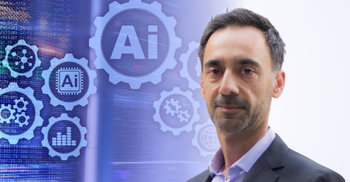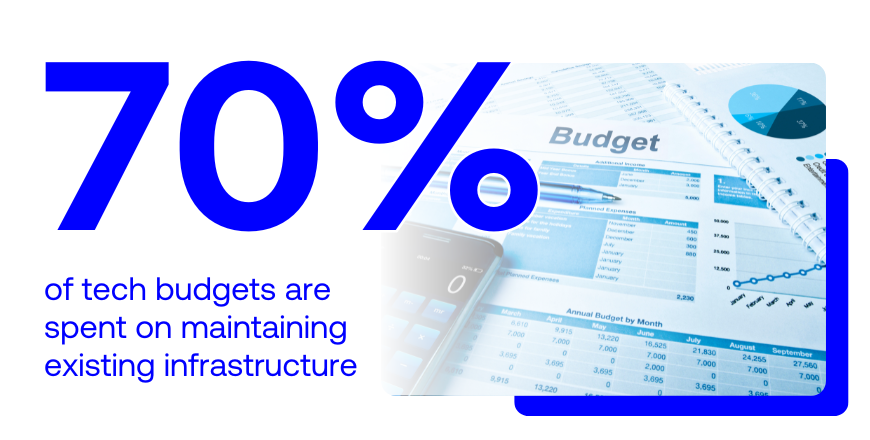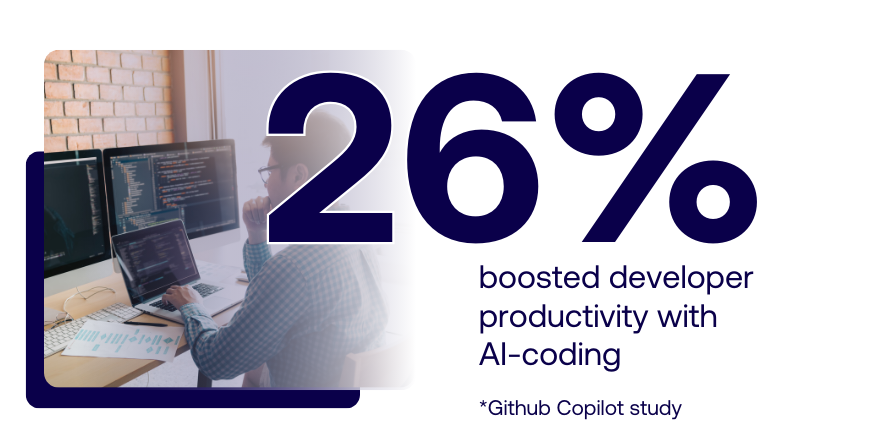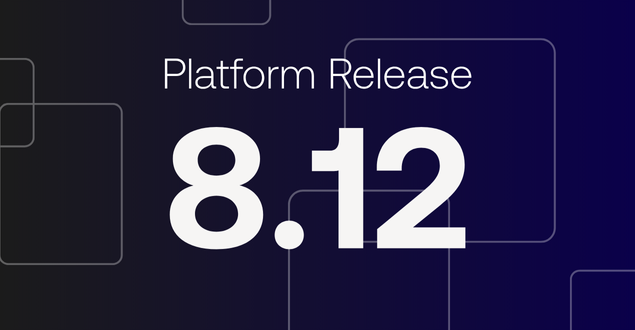
Table of Contents
The Rise of AI in Financial Services
Any technology entering the financial industry must pass rigorous compliance and resilience tests, which can slow adoption. Yet, generative AI is rapidly becoming central to financial institutions’ technology strategies, driven by competitive positioning, cost optimization, and efficiency gains.
BBVA, for example, has deployed more than 3,000 ChatGPT Enterprise licenses to boost productivity in legal, risk, marketing, talent and finance. Beyond these functions, AI’s potential extends to Know-Your-Customer (KYC) processes, research, credit underwriting and client services.
However, while AI presents exciting opportunities, financial institutions must address key challenges to ensure long-term success. The sheer volume of AI-generated code introduces governance, compliance, and security concerns. Additionally, integrating AI with complex internal systems and databases remains difficult.

The Challenge of AI in a Legacy-Dominated Landscape
The urgency to integrate AI in financial services coincides with a long-standing need to modernize legacy systems. Today, up to 70% of financial institutions’ technology budgets are allocated to maintaining existing infrastructure, leaving minimal resources, typically less than 10%, for innovation. As a result, adopting AI applications in financial markets is automatically pre-constrained by a shortage of budget.
Interestingly, technology spending is escalating. According to McKinsey, annual technology spending in banking has been increasing 9%, outpacing revenue growth of 4%. But despite this increased investment, McKinsey found that most banks still experience declining productivity, growing cost of complexity and a hard-to-prove connection between technology investment and competitive advantage.
Institutions that do realize value from their technology investments often establish a virtuous cycle—where improvements in developer productivity unlock additional capacity for innovation. AI-assisted coding tools and agentic AI hold promise in accelerating financial technology development, reducing vendor dependencies, and upgrading legacy systems.
Yet, early evidence suggests that the initial gains from AI-assisted software development don’t match the full potential of the technology. For example, a study of 5,000 developers using GitHub Copilot found that AI-assisted coding boosted productivity by 26%, with the greatest impact on junior developers. Yet, this raises concerns about potential defects and security risks, as less-experienced developers may trust AI outputs without adequate validation. While a 25%+ improvement in productivity is valuable, it’s insufficient to overcome the weight of legacy codebases. To truly transform AI-driven development, financial institutions need more than just speed—they need structured AI governance and domain-specific frameworks.

Use industry-specific guardrails and frameworks to enhance productivity and compliance
Financial institutions can maximize AI’s benefits while mitigating risks by embedding AI within industry-specific, trusted frameworks. The right AI guardrails provide compliance, security, and maintainability while ensuring AI-generated code aligns with regulatory and operational standards.
This is where having the right technology can make a difference. A validated software development framework ensures that AI-generated code adheres to functional and compliance parameters, preventing deviations that could introduce risk. By operating within predefined boundaries, financial institutions can harness AI applications confidently, knowing that compliance is built into the development process.
Sequoia Capital echoes this view, emphasizing that industry-specific architecture offers “guardrails to ensure compliance and application logic that mimics the way a human might reason through a workflow.” Genesis enables this structured AI application, allowing firms to innovate faster without sacrificing security or governance.
Empower software generalists to do specialist work
The competition for top-tier development talent is intense, limiting financial institutions’ ability to scale innovation. While making senior developers more productive is valuable, AI offers a unique opportunity: enabling junior and mid-level developers—and even technically aligned business analysts—to take on more complex work.
With Genesis, AI delivers well-structured, governable code, allowing less-experienced developers to assemble a complete, production-ready financial markets application. This shift not only addresses the skills gap but also accelerates delivery while maintaining rigorous compliance and security standards.
Segment business problems and define success metrics
To maximize AI’s impact, firms must:
- Align AI strategies with specific business needs: AI for software development differs from AI for decision-making in workflows.
- Focus on large-scale challenges: Firms must prioritize modernizing legacy technology, reducing vendor dependencies, and managing End-User Computing (EUC) sprawl.
- Accelerate the full software lifecycle: Not just at the initial development phase, but also testing, maintenance and integration.
- Establish clear success metrics: Beyond productivity, firms should measure cost reductions, risk mitigation, and scalability.
Genesis helps firms standardize the software development lifecycle (SDLC) through AI-powered automation, ensuring efficiency across all phases.
The Future of AI-Enabled Software Development in Financial Services
AI is evolving rapidly, and no single model will dominate indefinitely. Firms must take a model-agnostic approach, integrating AI into their software lifecycle in a way that allows flexibility. Rather than relying on any one provider, Genesis equips financial institutions with domain-specific AI integrations, ensuring models deliver precise, actionable outputs within compliance and security frameworks.
Developer productivity is foundational for financial institutions aiming to modernize legacy systems and capitalize on AI’s full potential. However, the next phase of AI-driven software development will go beyond individual productivity gains.
We anticipate an agent-driven future, where AI bots augment every phase of software development—from design to testing and deployment. Yet, in financial markets, even the most advanced AI will need to operate within strict guardrails to ensure resilience, compliance, auditability, and security.
At Genesis, we’re committed to providing a secure, AI-enabled development platform tailored to the financial industry’s unique needs. By embedding AI within a trusted framework, firms can innovate with confidence—balancing speed, compliance, and long-term strategic growth.
Ready to harness AI for innovation with the right guardrails? Book your 30-minute, 1:1 meeting to explore how the Genesis Application Platform can help solve your business challenges.









